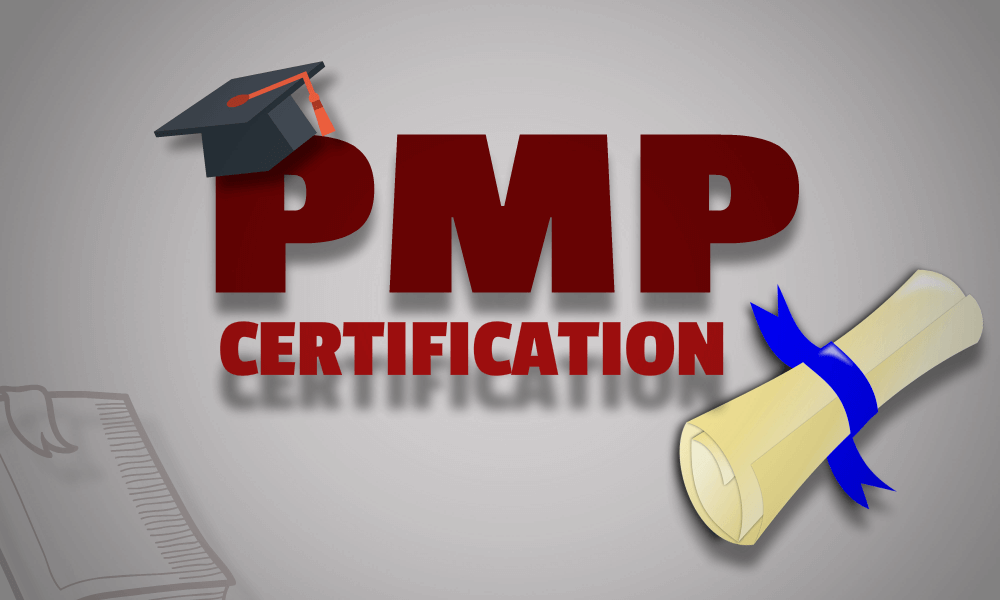If you are planning to complete the PMP Certification Training learn about the PMP Certification Process offered by PMI. Take the exam to test your skills. Explore online costs and study materials. Once certified, Get new opportunities. Dive into this 360-degree certification process guide for Project Management Institute’s PMP certification badge.
How to get Project Management Professional Certification?
Here’s a step-by-step guide to obtaining your PMP certification, covering everything you need to know to achieve this professional milestone.
Step 1: Check PMP certification Eligibility Criteria:
Before applying for the Project Management Professional (PMP) Certification, ensure you meet the required domain experience levels and educational criteria.

There are two main eligibility requirements to take the PMP exam and earn your certification:
Education & Experience Criteria:
For four-years Bachelor’s degree or equivalent experience Holders:
- Have at least 3 years or 36 months of project management experience
- 4500 Hours Leading & directing the Project
- Complete 35 hours of formal project management education/training
For Secondary degree or global equivalent Holders:
- Have at least 5 years or 60 months of project management experience
- 7,500 Hours Leading & directing the Project
- Complete 35 hours of formal project management education/training
Step 2: Apply for Your PMP Certification
After Confirming the eligibility requirements, it’s time to submit your application. To streamline the process, we recommend gathering all the necessary information beforehand. Here’s what you will need:
- Contact Details: Include your email address, phone number, and mailing address.
- Education History: Provide details of your educational background, including the name of the institution, degree earned (if applicable), and graduation date.
- Project Management Experience: List the projects, programs, or portfolios you have managed. Be sure to include details like:
- Qualifying hours spent on each project
- Employment dates for each role
- Your specific role and the organisation involved
- Contact information for a reference for each project
- A brief summary of your experience on each project
- Project Management Education: If you have completed any project management courses, please include the course name, institution, completion date, and any qualifying hours earned.
Important Note: Your application will remain active for 90 days. To avoid multiple sessions, gather all the required information before starting your application.
Step 3: Application Review
The Project Management Institute (PMI) takes a thorough approach to ensure the credibility of its certifications. Here’s what you can expect after submitting your application:
Review Process (5-10 business days):
- PMI will verify that you meet all eligibility requirements as outlined in the certification handbook.
- They will closely examine your documented experience and/or education to ensure accuracy and alignment with the guidelines.
- If PMI has any questions or needs clarifications, they will contact you directly via email with further instructions.
Application Audit (Possible Selection):
- A random selection of applications undergoes a more in-depth audit process.
- This audit aims to confirm the details provided regarding your experience and education.
- PMI conducts audits to uphold the program’s credibility and ensure certification holders meet the high standards.
Communication:
- PMI will communicate the outcome of your application review via email.
- You will be notified of the next steps if your application is approved.
Timeline:
- The application review process typically takes 5-10 business days.
Step 4: Aware of PMP certification cost:
The cost of getting your PMP certification can vary depending on a few factors, but here’s a breakdown of the main expenses:
- PMP Exam fee: This is the core PMP certification cost and depends on whether you are a member of the Project Management Institute (PMI) or not.
- PMI members pay $405,
- While non-members pay $555.
- Training: PMP training courses are recommended to prepare for the exam. These can range from $300 to $3,000 depending on the format (online, in-person) and provider.
- PMI membership (optional): There are benefits to being a PMI member besides the discounted exam fee. An annual membership costs $149.
- Re-examination fees: If you don’t pass the exam on the first try, there’s a fee to retake it. It’s cheaper for PMI members ($275) than non-members ($375).
- Renewal fees: To maintain your PMP certification, you need to earn renewal units (PDUs) every three years and pay a renewal fee, which can be $60 or $150 depending on your PMI membership status.
Step 5: Complete the Payment:
Once your application is approved, proceed with payment through our online certification system. After payment confirmation, you will receive an eligibility number via email. This number is valid for one year and allows you to schedule your exam up to three times within that period.

Step 6: Scheduling Your PMP Exam (After Application Approval)
- Once your payment is received, PMI will email you an eligibility number.
- Use this eligibility number to schedule your exam appointment through the designated platform.
- Your eligibility for the exam lasts for one year, and you are allowed up to three attempts within that time frame.
PMP Certification Exam Preparation Tips:
Here are 5 short tips to help you clear the PMP Certification Exam:
- Master the PMBOK Guide: This is the Project Management Institute’s guide to the body of knowledge for project management. Understanding the PMBOK Guide is essential for passing the PMP exam, as it covers the ten project management knowledge areas, processes, and best practices.
- Practice with PMP practice exams: Take advantage of practice exams to identify your weak areas and get comfortable with the exam format. Many resources offer practice exams, including the Project Management Institute (PMI) itself.
- Find a study method that works for you: Whether it’s attending a PMP training course, joining a study group, or using online resources, find a study method that helps you retain information effectively.
- Focus on applying your knowledge: The PMP exam questions is not just a test of your knowledge; it’s a test of your ability to apply that knowledge to real-world project management scenarios.
- Manage your time effectively: The PMP exam is four hours long, and you will need to manage your time effectively to answer all of the questions. Practice answering questions within the time limit during your practice exams.
Step 7: Earning Your PMP Certification: Post-Exam Steps:
Passing the PMP exam, you have a question: What is the process for obtaining PMP certification? Here is a significant accomplishment! A simplified guide to securing your official certification:
- Automatic Results Notification: Upon completing the exam, you will receive an immediate notification of your pass/fail status at the testing center.
- Official Results and Certificate (Pass Only):
- If you passed, PMI will formally notify you of your results within a few days via email.
- You will also receive instructions for accessing your digital certificate.
- Maintaining Your Certification:
- You must earn 60 Professional Development Units (PDUs) every three years to maintain your active PMP status.
- PMI offers various resources and guidelines for fulfilling this requirement.
Conclusion
Achieving PMP certification requires a significant investment of time, effort, and money, but the benefits far outweigh the costs. The certification not only enhances your project management skills but also opens doors to higher-paying job opportunities and greater recognition in the field. By understanding the PMP certification process and its associated costs, you can plan and budget effectively for this valuable credential. Whether you’re a seasoned project manager or looking to advance your career, PMP certification is a powerful tool that can elevate your professional standing and set you on a path to success.







